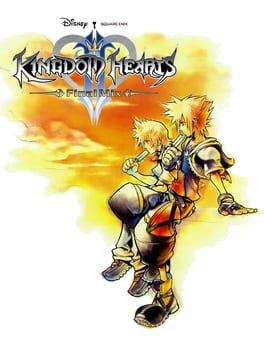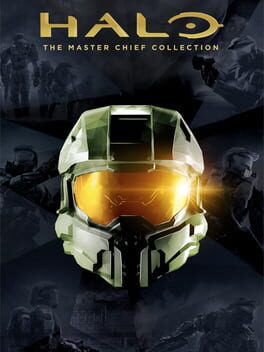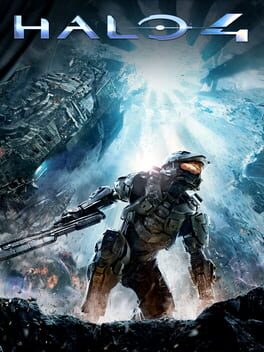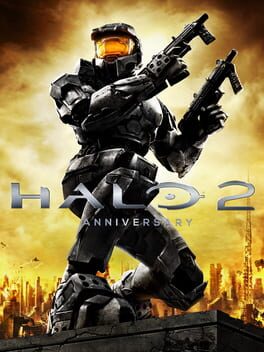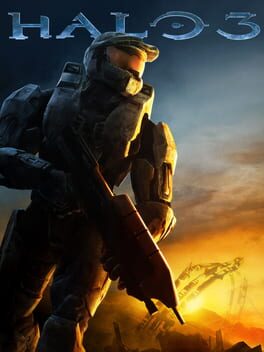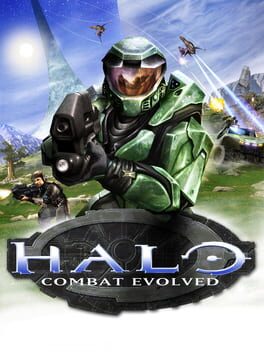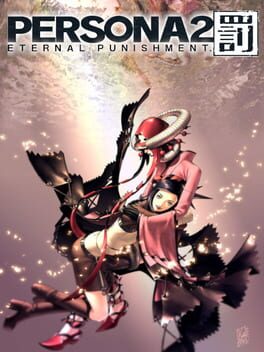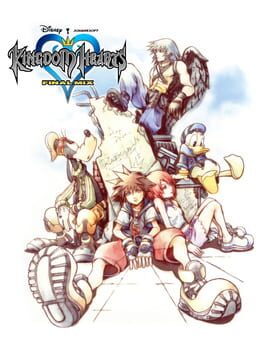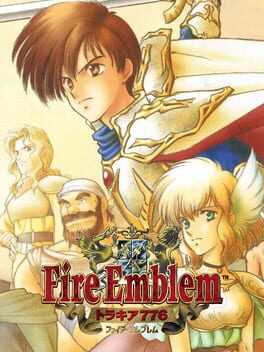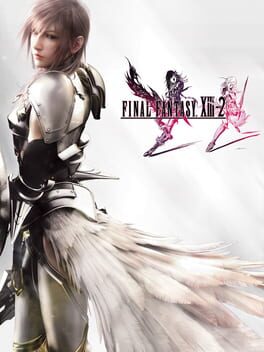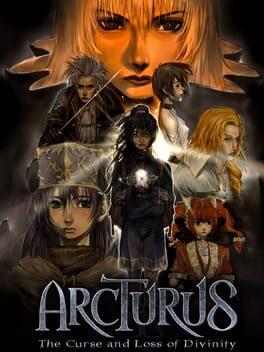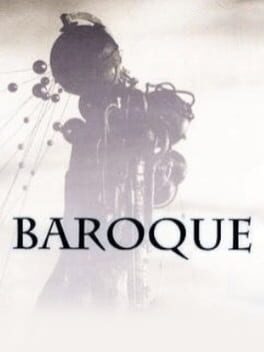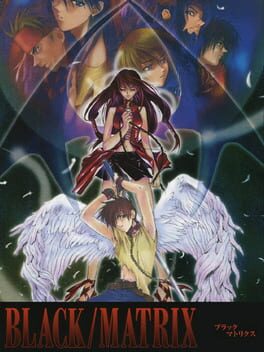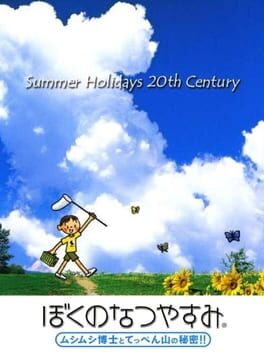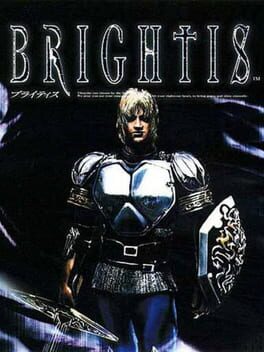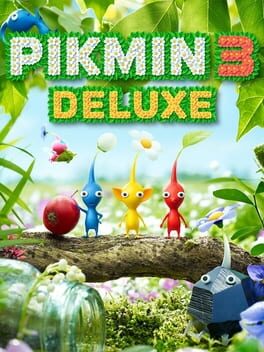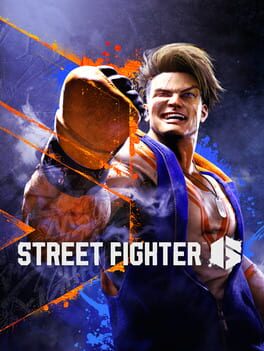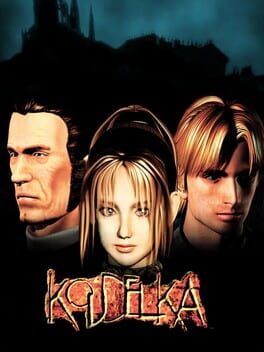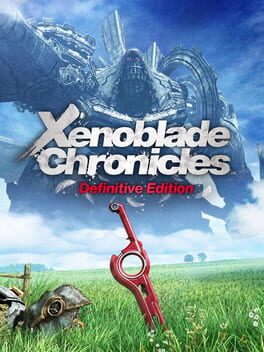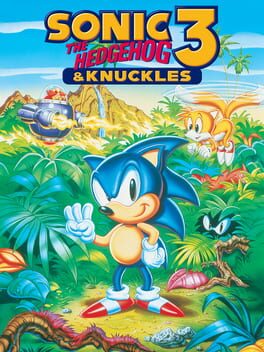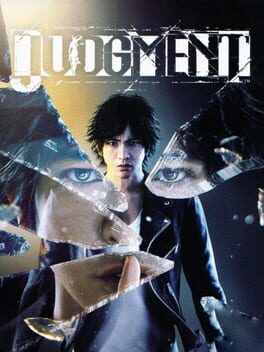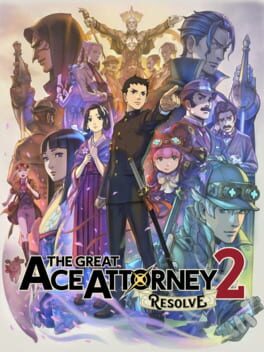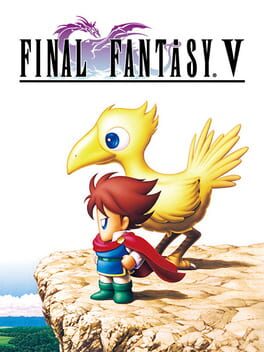chainy
BACKER
84 reviews liked by chainy
truly one of the best sequels ever made. kingdom hearts 2 improves massively on every aspect of it’s charming but flawed predecessor. at least on critical, the combat is polished to a sheen, with a really refreshing balance between straight-forward inputs and nuanced resource management. combos are dead simple, but kh2 isn’t really about combos in the first place. instead, the player is forced to consider their resources moment-to-moment, and how to get as much as they can out of everything. a lot of these battles are very tight squeezes (or at least they were for me, as i’m a bit inexperienced w action games), and it’s extremely satisfying to win because of a perfectly timed drive form or clever choice of summon. in this sense, i think KH2 gets a lot of mileage out of its fusion of character action and JRPG mechanics. it’s very approachable on a basic mechanical level, but still offers enough nuance to where players can feel confident that they truly learned a lot about the game’s inner workings over the course of their playthrough. a great rpg is balanced by the player’s knowledge of the game, and a great action game is balanced by the player’s muscle memory of the game, but despite these goals seeming completely adverse to each other, kh2 really manages to combine both into a package that i’m confident would please any fan of either genre. i’m not sure how true this would be on the other difficulties, since critical felt almost exactly perfectly balanced to me, but the good side of this is that the combat fundamentals in kh2 are enjoyable enough on their own that you could really just combo trash mobs for a few hours and have fun. there’s still some fights i think are poorly handled (the final boss being by far the worst fight in the game seems to be a kingdom hearts tradition at this point), but when 95% of the game is THIS fun, i really cannot complain. outside of the combat, i’d still say kh2 is an improvement on the original game, but a more marginal one. gimmick sections don’t run as long and control much better than in kh1, but i wouldn’t really say they’re a highlight. navigating worlds is much less obnoxious because of the increased linearity, but this does come with the trade off of many of these areas feeling like themed hallways. i could see people being turned off by just how direct this game is about what it needs you to do, but honestly, i don’t play these games for environmental gimmicks or platforming, so it just doesn’t bother me. the tighter level design also comes with the benefit of creating more controlled pacing for each world without making each world feel rushed or lacking in content. enemy variety is also very good for the majority of the game, though i did feel that enemies reliant on zoning (mages, snipers) didn’t feel as different from other heartless/nobodies as those enemy types did in kh1. these are very small nitpicks though, the majority of my time in KH2FMCM was an absolute blast.
when it comes to storytelling, i’d also say KH2 is mostly an improvement on KH1, though maybe a little less focused than CoM. the concept of nobodies is a really interesting one, but i think they were either written in a contradictory manner by accident, or the narrative is just unwilling to interrogate their existence. we’re told nobodies are essentially monsters imitating the appearance of humanity, but with the information we get within the narrative, that simply can’t be true. we see time and time again that nobodies are capable of feeling emotion, and are very capable of having human flaws; in everything but name they really may as well be humans, and xemnas makes a fairly strong argument when he questions why sora even cares. sora has a personal connection to the events, sure, but he isn’t aware of that until very late into the story anyways. the organization’s goals are, in my opinion, deeply sympathetic. we know from playing as roxas for the intro how unfair their nonexistence is, we can tell that they’re “real” people in many ways, we see several of them get actual development. it’s strange, because i can’t really tell what they’re trying to get across. if nobodies are really emotionless zombies filled with malice, why go through the effort to make us care about roxas and axel? if they’re human in all but name, why have sora spend the plot trying to kill them mostly just because he was told to by some old wizard? the meaning to sora’s narrative is similarly confusing to me; considering KH1 and CoM were such strongly focused around the development of their main characters, it felt odd to me that I couldn’t really think of a definitive statement KH2 was trying to make when it came to sora. is it about self-acceptance? is it about sora conquering nihilism? i really couldn’t tell you. on the bright side, the disney worlds are far more interesting, and the hints at a greater lore are all really cool. just wish it felt more coherent as a single story.
when it comes to storytelling, i’d also say KH2 is mostly an improvement on KH1, though maybe a little less focused than CoM. the concept of nobodies is a really interesting one, but i think they were either written in a contradictory manner by accident, or the narrative is just unwilling to interrogate their existence. we’re told nobodies are essentially monsters imitating the appearance of humanity, but with the information we get within the narrative, that simply can’t be true. we see time and time again that nobodies are capable of feeling emotion, and are very capable of having human flaws; in everything but name they really may as well be humans, and xemnas makes a fairly strong argument when he questions why sora even cares. sora has a personal connection to the events, sure, but he isn’t aware of that until very late into the story anyways. the organization’s goals are, in my opinion, deeply sympathetic. we know from playing as roxas for the intro how unfair their nonexistence is, we can tell that they’re “real” people in many ways, we see several of them get actual development. it’s strange, because i can’t really tell what they’re trying to get across. if nobodies are really emotionless zombies filled with malice, why go through the effort to make us care about roxas and axel? if they’re human in all but name, why have sora spend the plot trying to kill them mostly just because he was told to by some old wizard? the meaning to sora’s narrative is similarly confusing to me; considering KH1 and CoM were such strongly focused around the development of their main characters, it felt odd to me that I couldn’t really think of a definitive statement KH2 was trying to make when it came to sora. is it about self-acceptance? is it about sora conquering nihilism? i really couldn’t tell you. on the bright side, the disney worlds are far more interesting, and the hints at a greater lore are all really cool. just wish it felt more coherent as a single story.
i can finally put a log for this igdb entry because i finished playing all the actual games
this is half gonna be my thoughts on this specific collection and half my thoughts on halo as a whole
i dont think this is a bad collection at all but man do i wish it had some extra stuff
like credits? where are the credits? why would they not have the credits for each game at the end of each campaign? just really rubbed me the wrong way man
or bonus material like development stuff or even just an art/music gallery, like cmon man you dont get an opportunity to include that stuff that often so why not do it here
i do like that they have all the extra in-game stuff easily accessible in an extras menu, though i do kind of wonder why they bothered putting that stuff in the campaigns in the first place if it wasn't going to be exclusive to the campaigns themselves (i know the halo 3 stuff was already in there but the halo 2 stuff is brand new)
something that ISNT accessible to the extras menu for some reason is the weird side story in odst
but its also kind of really weird? im not really sure what the whole goal of it is, i guess its supposed to give you an idea of what it's like to be a citizen when the covenant attacks except for the fact that the main character is clearly special
idk man i find it weird when i look up the character and find out they have no mention throughout the rest of the series (novels not counting)
feels like someone just got their fanfiction added to the main game tbh
i didn't like how the loading screens between missions/levels were exactly the same between the different campaigns, i would've much preferred just keeping the original transitions (actually looking it up now it looks like there were actually no loading screens at all in the original games? talk about a downgrade!)
i DID like having the toggle for original graphics/remaster graphics, that's just always a fun feature for rereleases like this to have and more games need to do it
you know what REALLY pissed me off once i realized it
the fact that not having easy anti-cheat enabled completely DISABLES achievements for the collection
like what the fuck man i get maybe disabling achievements for multiplayer related things but i didnt even TOUCH multiplayer so why am i being punished
i have to imagine either
1. microsoft was just a bunch of dumbasses and were treating it like their own achievements and decided that to preserve the integrity and sanctity of "gamerscores", they needed to make ABSOLUTELY SURE that achievements were earned legit (despite the game being on a completely different service (steam) and said service not really caring at all how people get achievements) OR
2. whatever method they used to turn off achievements for multiplayer without easy anti-cheat has no way to differentiate between that and singleplayer games and they just didn't care enough to figure it out
either way its dumb and i dont like it! not one bit! but also it didn't detract from the actual games at all so whatever i'll get over it
halo as a series is pretty boring! but not in a bad way
it feels like each game doesn't do a whole lot to expand upon the previous games, like even with added abilities and new mechanics, ultimately the games all sort of follow the same cycle of
1. walk through an area
2. shoot some enemies
3. walk some more
4. shoot more enemies
5. repeat a few more times until
6. shoot enemies in multiple waves until level is complete
and then interspersed is a few cutscenes and occasional switch ups like "shoot enemies IN A CAR that's maybe FLYING" or "walk through an area AND hear exposition"
i think the game that gets closest to really switching things up is odst though that falls short too
odst makes you explore an open city to go find pieces of evidence to further the story which is different because you sort of pick and choose which levels you want to play next
however what kind of sucks is that the non-flashback city exploration sections just boil down to the same "walk through an area, shoot some enemies" cycle
feels like they missed an opportunity to change things up and like
idk put the evidence somewhere hard to reach so the player would have to actually figure out a way to reach it, or maybe have the player do something unique to the environment like having to ride through a subway tunnel or clear a traffic jam to proceed to a new area
halo 2 switched things up a bit by having you play as the arbiter, which i actually found pretty cool, though again they didn't go all the way because other than the camo replacing your flashlight, he plays basically the same as master chief
the halo series is like an action movie series that gets kind of repetitive but never actually bad
like the action starts out good but low budget, then with success it gets more grandiose and is still good but starts to look same-y, meanwhile the story serves the action well but often fails under scrutiny, but never gets so bad that it actively detracts from the whole experience
get some popcorn or a dessert, sit down, and watch the fireworks
and then when it's over, move on with your day
ultimately my advice is this: if you have an interest in playing halo, do it! this is a good way to do it and there's nothing really bad about it
BUT dont go into it expecting to experience some sort of videogame masterpiece like the half life series (just my opinion) or the last of us (not my opinion just what a lot of people say)
it's not a masterpiece,
but it is pretty alright
this is half gonna be my thoughts on this specific collection and half my thoughts on halo as a whole
i dont think this is a bad collection at all but man do i wish it had some extra stuff
like credits? where are the credits? why would they not have the credits for each game at the end of each campaign? just really rubbed me the wrong way man
or bonus material like development stuff or even just an art/music gallery, like cmon man you dont get an opportunity to include that stuff that often so why not do it here
i do like that they have all the extra in-game stuff easily accessible in an extras menu, though i do kind of wonder why they bothered putting that stuff in the campaigns in the first place if it wasn't going to be exclusive to the campaigns themselves (i know the halo 3 stuff was already in there but the halo 2 stuff is brand new)
something that ISNT accessible to the extras menu for some reason is the weird side story in odst
but its also kind of really weird? im not really sure what the whole goal of it is, i guess its supposed to give you an idea of what it's like to be a citizen when the covenant attacks except for the fact that the main character is clearly special
idk man i find it weird when i look up the character and find out they have no mention throughout the rest of the series (novels not counting)
feels like someone just got their fanfiction added to the main game tbh
i didn't like how the loading screens between missions/levels were exactly the same between the different campaigns, i would've much preferred just keeping the original transitions (actually looking it up now it looks like there were actually no loading screens at all in the original games? talk about a downgrade!)
i DID like having the toggle for original graphics/remaster graphics, that's just always a fun feature for rereleases like this to have and more games need to do it
you know what REALLY pissed me off once i realized it
the fact that not having easy anti-cheat enabled completely DISABLES achievements for the collection
like what the fuck man i get maybe disabling achievements for multiplayer related things but i didnt even TOUCH multiplayer so why am i being punished
i have to imagine either
1. microsoft was just a bunch of dumbasses and were treating it like their own achievements and decided that to preserve the integrity and sanctity of "gamerscores", they needed to make ABSOLUTELY SURE that achievements were earned legit (despite the game being on a completely different service (steam) and said service not really caring at all how people get achievements) OR
2. whatever method they used to turn off achievements for multiplayer without easy anti-cheat has no way to differentiate between that and singleplayer games and they just didn't care enough to figure it out
either way its dumb and i dont like it! not one bit! but also it didn't detract from the actual games at all so whatever i'll get over it
halo as a series is pretty boring! but not in a bad way
it feels like each game doesn't do a whole lot to expand upon the previous games, like even with added abilities and new mechanics, ultimately the games all sort of follow the same cycle of
1. walk through an area
2. shoot some enemies
3. walk some more
4. shoot more enemies
5. repeat a few more times until
6. shoot enemies in multiple waves until level is complete
and then interspersed is a few cutscenes and occasional switch ups like "shoot enemies IN A CAR that's maybe FLYING" or "walk through an area AND hear exposition"
i think the game that gets closest to really switching things up is odst though that falls short too
odst makes you explore an open city to go find pieces of evidence to further the story which is different because you sort of pick and choose which levels you want to play next
however what kind of sucks is that the non-flashback city exploration sections just boil down to the same "walk through an area, shoot some enemies" cycle
feels like they missed an opportunity to change things up and like
idk put the evidence somewhere hard to reach so the player would have to actually figure out a way to reach it, or maybe have the player do something unique to the environment like having to ride through a subway tunnel or clear a traffic jam to proceed to a new area
halo 2 switched things up a bit by having you play as the arbiter, which i actually found pretty cool, though again they didn't go all the way because other than the camo replacing your flashlight, he plays basically the same as master chief
the halo series is like an action movie series that gets kind of repetitive but never actually bad
like the action starts out good but low budget, then with success it gets more grandiose and is still good but starts to look same-y, meanwhile the story serves the action well but often fails under scrutiny, but never gets so bad that it actively detracts from the whole experience
get some popcorn or a dessert, sit down, and watch the fireworks
and then when it's over, move on with your day
ultimately my advice is this: if you have an interest in playing halo, do it! this is a good way to do it and there's nothing really bad about it
BUT dont go into it expecting to experience some sort of videogame masterpiece like the half life series (just my opinion) or the last of us (not my opinion just what a lot of people say)
it's not a masterpiece,
but it is pretty alright
Halo 4
2012
finally... the LAST halo game...
really though im not playing any more this is the last one for me (unless halo 5 comes to pc and infinite goes WAAAY on sale because i am NOT paying 60 bucks)
actually kind of okay, didn't hate it, thought the story was alright but it was pretty predictable even before i played it
like of course after 3 games of "ARMY HOO-RAH" they gotta go with the very subversive "but what if army structures lead to bad people in charge???? questionable morals for super soldier creation????" "master chief SAD????????"
in this game cortana has lost her chin. i think it's in the next game
she's also the bluest she has literally ever been, which i think at this point is established to be related to her age which makes sense considering one of the key plot points
she also removes your suit flashlight? like she says at the beginning "i updated your suit firmware" and then you just dont have a flashlight the entire game so thanks for that i guess cortana?
the forerunner areas reminded me of the original covenant areas in the first game (in that they looked really boring and repetitive) though other areas were pretty alright
they brought the special abilities back which is cool but wow do all but a couple suck
the shield slows you way too much to make it useful at all for traversing between cover,
the camo is SUPER nerfed compared to the camo in like halo 2 or something,
the decoy just doesn't seem to do anything? you can't really make good use of it because once you expose yourself so you can send it on a path to distract the enemies, they are already focused on you,
the armor lock literally makes you a sitting duck (i actually forget if it was in this game or reach tbh either way its bad),
the forward launch both never showed up for me until the end of the game and also just seemed pretty difficult to use in general,
and the x-ray vision is mostly useless because even though it lets you know where enemies are they almost always are immediately aware of where YOU are, which then alerts you to them anyways because they start shooting at you, also i never got it in an area where i could really take advantage of it with grenades or sneak attacks or anything
that leaves just the jetpack which provides pretty useful upward mobility (can skip taking the stairs) and the auto-turret which is basically like a more useful decoy because it actually draws fire to it, shoots back, and splits the enemies attention
the ending of this game is really unintentionally funny, just (SPOILERS SPOILERS FOR THIS ONE LINE CMON BACKLOGGD!!! INLINE SPOILERS PLEASE???? IM DESPERATE!!!!! I CANT TAKE IT!!!!!!) master chief going "oh yeahhhh she said that once" and it just ending with that
thats basically all i have to say, honestly these games aren't super deep or involved, i beat this one in 2 days (i had basically no distractions)
really though im not playing any more this is the last one for me (unless halo 5 comes to pc and infinite goes WAAAY on sale because i am NOT paying 60 bucks)
actually kind of okay, didn't hate it, thought the story was alright but it was pretty predictable even before i played it
like of course after 3 games of "ARMY HOO-RAH" they gotta go with the very subversive "but what if army structures lead to bad people in charge???? questionable morals for super soldier creation????" "master chief SAD????????"
in this game cortana has lost her chin. i think it's in the next game
she's also the bluest she has literally ever been, which i think at this point is established to be related to her age which makes sense considering one of the key plot points
she also removes your suit flashlight? like she says at the beginning "i updated your suit firmware" and then you just dont have a flashlight the entire game so thanks for that i guess cortana?
the forerunner areas reminded me of the original covenant areas in the first game (in that they looked really boring and repetitive) though other areas were pretty alright
they brought the special abilities back which is cool but wow do all but a couple suck
the shield slows you way too much to make it useful at all for traversing between cover,
the camo is SUPER nerfed compared to the camo in like halo 2 or something,
the decoy just doesn't seem to do anything? you can't really make good use of it because once you expose yourself so you can send it on a path to distract the enemies, they are already focused on you,
the armor lock literally makes you a sitting duck (i actually forget if it was in this game or reach tbh either way its bad),
the forward launch both never showed up for me until the end of the game and also just seemed pretty difficult to use in general,
and the x-ray vision is mostly useless because even though it lets you know where enemies are they almost always are immediately aware of where YOU are, which then alerts you to them anyways because they start shooting at you, also i never got it in an area where i could really take advantage of it with grenades or sneak attacks or anything
that leaves just the jetpack which provides pretty useful upward mobility (can skip taking the stairs) and the auto-turret which is basically like a more useful decoy because it actually draws fire to it, shoots back, and splits the enemies attention
the ending of this game is really unintentionally funny, just (SPOILERS SPOILERS FOR THIS ONE LINE CMON BACKLOGGD!!! INLINE SPOILERS PLEASE???? IM DESPERATE!!!!! I CANT TAKE IT!!!!!!) master chief going "oh yeahhhh she said that once" and it just ending with that
thats basically all i have to say, honestly these games aren't super deep or involved, i beat this one in 2 days (i had basically no distractions)
Halo 2: Anniversary
2014
its better than halo 1!
way more diverse and less "where the fuck do i go" moments
also the arbiter is cool, nice change of pace and it actually made me kind of sad when i couldn't go into invisible mode when i was master chief
although i do find it funny that the arbiter is basically just some guy in plate armor
in this game, cortana has become blue (this is good)
im pretty sure the entirety of the development team ceased existence right before they could finish the ending because the game just ends
just like this!
way more diverse and less "where the fuck do i go" moments
also the arbiter is cool, nice change of pace and it actually made me kind of sad when i couldn't go into invisible mode when i was master chief
although i do find it funny that the arbiter is basically just some guy in plate armor
in this game, cortana has become blue (this is good)
im pretty sure the entirety of the development team ceased existence right before they could finish the ending because the game just ends
just like this!
Halo 3
2007
it's better than halo 2!
lol at the background image for the backloggd page
i cant believe there was actually an ending to this story
like yeah there's a "oh what will happen next?" kind of ending but they wrapped up basically every outstanding plot thread before it so they could literally continue it however they want
the arbiter just being your homie in the game is pretty fun
side note- i looked up mods for the game to see if there were any sort of revamp projects to make it more faithful to the OG release (like how there are for sonic games) and the only thing i found was big booby arbiter mods
like 5 different versions too it was kind of wild
in this game cortana is really goofy looking and is shown in the most unflattering angles throughout the majority of the game (for lore reasons)
im kind of sad there were less "gun down your enemies with a turret" moments but it was very much made up with the whole "just take the turret with you" mechanic
my god people look ghoulish in this game, like genuinely disturbing faces
everyone except miranda for some reason, miranda looked pretty normal
why are the boss fights in all these games so anti-climactic, like idk if it's because there's no health bar or clear attack-defend cycle like in other games but i basically just shot the boss, and then they died
i think this game was a pretty good length, not repetitive like the first and not dragging on too long like the second
its right in the goldilocks zone (thats a space reference)
lol at the background image for the backloggd page
i cant believe there was actually an ending to this story
like yeah there's a "oh what will happen next?" kind of ending but they wrapped up basically every outstanding plot thread before it so they could literally continue it however they want
the arbiter just being your homie in the game is pretty fun
side note- i looked up mods for the game to see if there were any sort of revamp projects to make it more faithful to the OG release (like how there are for sonic games) and the only thing i found was big booby arbiter mods
like 5 different versions too it was kind of wild
in this game cortana is really goofy looking and is shown in the most unflattering angles throughout the majority of the game (for lore reasons)
im kind of sad there were less "gun down your enemies with a turret" moments but it was very much made up with the whole "just take the turret with you" mechanic
my god people look ghoulish in this game, like genuinely disturbing faces
everyone except miranda for some reason, miranda looked pretty normal
why are the boss fights in all these games so anti-climactic, like idk if it's because there's no health bar or clear attack-defend cycle like in other games but i basically just shot the boss, and then they died
i think this game was a pretty good length, not repetitive like the first and not dragging on too long like the second
its right in the goldilocks zone (thats a space reference)
Halo: Combat Evolved
2001
working my way through the games and i've already forgotten most of this game except for the part where you walk through the same room seven times in a row, also the sheer exhilaration from getting to drive a car for the first time, then driving a hover car (oh wow), and then a FLYING car (holy SHIT)
also cortana is purple in this game and that really threw me off because she is never even remotely purple in any other game or depiction of her anywhere
i dont have much else to say about this other than after i finished it i was really hoping halo 2 was better
also cortana is purple in this game and that really threw me off because she is never even remotely purple in any other game or depiction of her anywhere
i dont have much else to say about this other than after i finished it i was really hoping halo 2 was better
the internet was a paradigm shift, wasn't it? since the late 90s we've seen an increasing amount of discussion around fact and fiction becoming muddied, with the distinction seemingly being irrelevant to many. information is as free as it gets, but the direct consequences for misinformation are minimal. of course, there's no end of works focusing on the subject of truth in the information age; in this very medium you have one of the most prescient and unique statements on the matter with MGS2. the persona 2 duology, however, is unique in that a lot of what it has to say feels before it's time. this is certainly an internet-age set of games, but calling them cyberpunk in any way would be a misnomer. persona 2 really is concerned about the broader societal implications that come about from people being willing and able to believe almost anything, and it directs that focus towards the physical world. in a lot of ways, P2 feels responsive towards the increasing prevalence of conspiracy theories in pop culture (a lot of popular conspiracies are even used as inspiration for plot beats in innocent sin), and i think P2 takes a unique stance in that they don't flat out deny that these things are worth believing in or looking into. rumors come to life, but rumors do have to start from somewhere; there's shreds of truth in any lie.
P2, and especially EP, puts a ton of emphasis on allowing the city to feel lived-in and breathing. for anything you do, there's new dialogue everywhere, and the main progression gimmick (rumors coming to life at the player's will) is utilized in a lot of clever ways to achieve that goal. persona games are known for being text-heavy in general, but i wouldn't be surprised if these two games had some of the larger scripts in the franchise, because every story moment basically changes the whole city. in a game all about listening to the pulse of the city, this feels very appropriate, creating a much stronger sense of immersion than you'd expect for a game like this.
now for stuff focused solely on EP:
out of all of the traditional storytelling archetypes, probably the most common for a JRPG to use is the coming of age story. this makes a lot of sense, logistically; most video game consumers are teenaged, most JRPG protagonists are teenaged, and the power fantasy typically inherent to the genre is about starting from a weak position and growing to be strong. eternal punishment doesn't have these sorts of goals, and it's a lot more engaging for it. EP's cast is a group of adults, and you'd be forgiven for thinking at the beginning of the game that this cast doesn't have much room to grow. indeed, EP's characters definitely do not "grow up" in the way typical for JRPG writing; these characters start out pretty divided and uncomfortable with each other, but there isn't a big climax where they confront their fears all at once and become a team. instead, EP uses optional dialogue to subtly paint a portrait of each of it's cast members and has them slowly begin to open up over time. it's rewarding and immersive to have these characters actually gain new contacts due to these little nuggets of development, and it's a much more lifelike approach to party development than you see in more traditional narratives. a key concept this game has about identity is that it's self-determined; people aren't simply on a search to discover how they really are, but are ever-changing and create the path they walk. i think integrating this into the story by making much of the development up to the player is exceptionally clever. it's a fairly common statement among writers attempting subversive character writing to say that human beings don't have arcs. i feel that this is often used to justify uninteresting or directionless character writing, but in EP it feels like a pretty considered thesis for the game's writing. i guess a better way of saying it is that people don't just have arcs, they don't grow up at one specific point. development here is more like a stream, ebbing and flowing.
STORY SPOILERS HERE
all that being said, eternal punishment was greenlit for a very specific reason; to give an alternate perspective to tatsuya. i also felt that this was done quite well. tatsuya was about as well-characterized as a silent protagonist could get in IS, i felt, but getting a voice definitely helps him. his self-imposed suicide mission is a great narrative hook, and the reasoning behind his existential guilt is one of the best reveals of the story. tatsuya commits (yet another) innocent sin by refusing to forget his friends again, and it's not surprising that he'd try to shoulder the burden to protect their reality. tatsuya is ultimately a character whose greatest weakness is his protective instinct, but through the comfort of the main cast he's able to get past that and use his sins as blessings. it's beautiful payoff for a story that's rife with personal loss and seemingly hopeless odds.
in a lot of ways, P2 reminds me of panzer dragoon saga. both are these hugely ambitious games from around the same time that are driven by the urge to do something different. when i played innocent sin, i felt that that game's attempts at novelty wore thin; the character writing didn't feel dense, the combat was far too easy, and the deviations from standards felt poorly justified by the narrative. although there are still things i dislike in EP, the overall package feels more cohesive. rumors are more immersive and offer more variety, character dialogue is more interesting, the combat and character progression is more difficult but offers more interesting decisionmaking. definitely a huge improvement.
P2, and especially EP, puts a ton of emphasis on allowing the city to feel lived-in and breathing. for anything you do, there's new dialogue everywhere, and the main progression gimmick (rumors coming to life at the player's will) is utilized in a lot of clever ways to achieve that goal. persona games are known for being text-heavy in general, but i wouldn't be surprised if these two games had some of the larger scripts in the franchise, because every story moment basically changes the whole city. in a game all about listening to the pulse of the city, this feels very appropriate, creating a much stronger sense of immersion than you'd expect for a game like this.
now for stuff focused solely on EP:
out of all of the traditional storytelling archetypes, probably the most common for a JRPG to use is the coming of age story. this makes a lot of sense, logistically; most video game consumers are teenaged, most JRPG protagonists are teenaged, and the power fantasy typically inherent to the genre is about starting from a weak position and growing to be strong. eternal punishment doesn't have these sorts of goals, and it's a lot more engaging for it. EP's cast is a group of adults, and you'd be forgiven for thinking at the beginning of the game that this cast doesn't have much room to grow. indeed, EP's characters definitely do not "grow up" in the way typical for JRPG writing; these characters start out pretty divided and uncomfortable with each other, but there isn't a big climax where they confront their fears all at once and become a team. instead, EP uses optional dialogue to subtly paint a portrait of each of it's cast members and has them slowly begin to open up over time. it's rewarding and immersive to have these characters actually gain new contacts due to these little nuggets of development, and it's a much more lifelike approach to party development than you see in more traditional narratives. a key concept this game has about identity is that it's self-determined; people aren't simply on a search to discover how they really are, but are ever-changing and create the path they walk. i think integrating this into the story by making much of the development up to the player is exceptionally clever. it's a fairly common statement among writers attempting subversive character writing to say that human beings don't have arcs. i feel that this is often used to justify uninteresting or directionless character writing, but in EP it feels like a pretty considered thesis for the game's writing. i guess a better way of saying it is that people don't just have arcs, they don't grow up at one specific point. development here is more like a stream, ebbing and flowing.
STORY SPOILERS HERE
all that being said, eternal punishment was greenlit for a very specific reason; to give an alternate perspective to tatsuya. i also felt that this was done quite well. tatsuya was about as well-characterized as a silent protagonist could get in IS, i felt, but getting a voice definitely helps him. his self-imposed suicide mission is a great narrative hook, and the reasoning behind his existential guilt is one of the best reveals of the story. tatsuya commits (yet another) innocent sin by refusing to forget his friends again, and it's not surprising that he'd try to shoulder the burden to protect their reality. tatsuya is ultimately a character whose greatest weakness is his protective instinct, but through the comfort of the main cast he's able to get past that and use his sins as blessings. it's beautiful payoff for a story that's rife with personal loss and seemingly hopeless odds.
in a lot of ways, P2 reminds me of panzer dragoon saga. both are these hugely ambitious games from around the same time that are driven by the urge to do something different. when i played innocent sin, i felt that that game's attempts at novelty wore thin; the character writing didn't feel dense, the combat was far too easy, and the deviations from standards felt poorly justified by the narrative. although there are still things i dislike in EP, the overall package feels more cohesive. rumors are more immersive and offer more variety, character dialogue is more interesting, the combat and character progression is more difficult but offers more interesting decisionmaking. definitely a huge improvement.
kingdom hearts is probably the most controversial JRPG franchise of all time. it's very common to see non-fans say they can't take it seriously and it's influence ruined franchises they prefer, and it is equally common to see fans say it changed their life and brings them to tears to think about. i think i come somewhere in the middle; kingdom hearts 1 is a pretty moving and cute story for it's target demographic, but it has a lot of clear growing pains that i feel could have been better addressed. the story is probably what i'd single out as the biggest strong point of kh1, it's a very pleasant little story preaching self-belief and perseverance with a lot of fun character moments. the disney stuff, for me, doesn't exactly help but doesn't really hurt. donald and goofy are enjoyable party members that don't really feel too far off from your standard comic relief party members in final fantasy games such as rikku or cait sith. i'm not sure if i'd say the friendship of the party feels especially believable by the end, but it works for the type of story kh1is trying to get across. the original characters are all also pretty fun; i'm not much of a fan of sora, since he feels very stock shonen protagonist, but riku and kairi are both fairly interesting characters. the (unintentional?) gay subtext with sora and riku is definitely the most interesting part of the character interactions in this game, it really oozes out of almost everything riku says and makes things between him and sora a bit more complicated than it initially seems. i felt that the big weakness of kh1's story came down largely to it's focus on the disney elements. many of the worlds are very stripped down versions of movie plots, which aren't really satisfying on their own and aren't really great fanservice, imo. several of my favorite disney movies actually are in kh1, but the only one i felt really happy with the representation for was nightmare before christmas. the good part of this is that the worlds are pretty short and breezy, with very little story, so if you aren't much of a disney fan they aren't tedious or anything. the bad part of this is that the overarching plot still does involve a lot of disney elements up until the last quarter or so, so if you want more meat you're going to be waiting for a while.
where i'm more mixed on kh1 is the gameplay. i played on proud mode, because i wanted to fully engage with the combat and uh... that was a mistake! not because i had too much trouble with the combat, but because kh1 has pretty minimal depth to it's combat, and the boss design can get downright atrocious. the pot centipede, giant ursula, genie jafar, chernabog, basically all of the final bosses, dragon maleficent.. there's so many fights in this game that i wouldn't call hard necessarily but would really call cheesy or boring. for most of the larger bosses the recommended strategy from experienced players is to just mash on them with aero/ra/ga and spam heals when you can with leaf bracer. i only really struggled with a handful of fights, but i would have a lot of trouble naming fights that i struggled on where the difference maker ended up being my skill rather than missing a specific spell or not using a specific summon that trivialized it. things reach a head after the first visit to hollow bastion, because beyond that point kh1 really loves throwing bosses with inflated health bars at you, and in the worst cases, those bosses have a vulnerability window of maybe 2-3 attacks if you're playing fair with them. if that sounds obnoxious and boring, that's because it is, so the recommended strategy for most of these bosses is to make sure to get aeroga and curaga and just wail on them. the room of waves of heartless being spawned on you is also just atrocious, pure chaos with very little counterplay beyond tanking. smart, aggressive play simply does not feel well-incentivized in kh1. i'd say the real peak of the game feeling challenging in a fun way would be the mid-game before you get leaf bracer, and the last fight on the first visit to hollow bastion. that fight kicked my ass a good 4 or 5 times, but it was engaging, fast, lethal, and made me want to get better. i can only hope that future kh games follow that precedent.
asides:
the ff characters in this game, imo, often didn't really act like themselves. squall, i mean leon, especially felt mischaracterized. not a big deal because the story isn't focused on them or anything but as a big fan of 8 i found it a little sad.
music is incredible, i'd mention the heartless theme, kairi's theme, the main theme, and obviously simple and clean as highlights. yoko shimomura is a great fit here, since she's experienced in music for kid's games from the mario rpg series but also has the range for more serious and heartfelt tracks.
the animation is surprisingly very high quality and emotive for a ps2 game, it seems like they really wanted to lean into disney animation principles. genie donald and goofy are all highlights in that regard
where i'm more mixed on kh1 is the gameplay. i played on proud mode, because i wanted to fully engage with the combat and uh... that was a mistake! not because i had too much trouble with the combat, but because kh1 has pretty minimal depth to it's combat, and the boss design can get downright atrocious. the pot centipede, giant ursula, genie jafar, chernabog, basically all of the final bosses, dragon maleficent.. there's so many fights in this game that i wouldn't call hard necessarily but would really call cheesy or boring. for most of the larger bosses the recommended strategy from experienced players is to just mash on them with aero/ra/ga and spam heals when you can with leaf bracer. i only really struggled with a handful of fights, but i would have a lot of trouble naming fights that i struggled on where the difference maker ended up being my skill rather than missing a specific spell or not using a specific summon that trivialized it. things reach a head after the first visit to hollow bastion, because beyond that point kh1 really loves throwing bosses with inflated health bars at you, and in the worst cases, those bosses have a vulnerability window of maybe 2-3 attacks if you're playing fair with them. if that sounds obnoxious and boring, that's because it is, so the recommended strategy for most of these bosses is to make sure to get aeroga and curaga and just wail on them. the room of waves of heartless being spawned on you is also just atrocious, pure chaos with very little counterplay beyond tanking. smart, aggressive play simply does not feel well-incentivized in kh1. i'd say the real peak of the game feeling challenging in a fun way would be the mid-game before you get leaf bracer, and the last fight on the first visit to hollow bastion. that fight kicked my ass a good 4 or 5 times, but it was engaging, fast, lethal, and made me want to get better. i can only hope that future kh games follow that precedent.
asides:
the ff characters in this game, imo, often didn't really act like themselves. squall, i mean leon, especially felt mischaracterized. not a big deal because the story isn't focused on them or anything but as a big fan of 8 i found it a little sad.
music is incredible, i'd mention the heartless theme, kairi's theme, the main theme, and obviously simple and clean as highlights. yoko shimomura is a great fit here, since she's experienced in music for kid's games from the mario rpg series but also has the range for more serious and heartfelt tracks.
the animation is surprisingly very high quality and emotive for a ps2 game, it seems like they really wanted to lean into disney animation principles. genie donald and goofy are all highlights in that regard
thracia is a game that really wants you to reexamine some behaviors and thoughts that you may have considered intrinsic to playing video games. is it worth it to strive for perfection? is fairness really the end goal of difficulty? is there really no honor in cheating? the most common statement you'll see about this game is that it's brutal, and the second most common statement you'll see about this game is that it's "just unfair to new players, but not that hard". neither of these statements are quite true; thracia is a very difficult game, and it is especially unkind to blind players, but it's paradoxically very effectively balanced. for the most part, this isn't a game where you're being put up against enemies way stronger than you, or a game where the enemies are given tons of toys you can't have. thracia is about trying to turn every disadvantage you're given into an advantage, and trying to win by choosing not to play within what the game presents as it's "rules" at all. to me, thracia feels very genuinely revolutionary in a way the prior 4 FEs, all also about revolutions, did not. the fatigue system means you are not allowed to be picky about your units, and you do not get your usual assortment of nobles and world-renown warriors. instead, you get a heck of a lot of bandits and sellswords, not to mention a handful of priests and illegitimate children. speaking of those bandits and priests, they are universally your MVPs in thracia. thracia has a very strong sense of materialism, both in it's plot and mechanics, which means that stealing and capturing weapons is simply your only option for acquiring weapons and money. this means that utility units are much stronger than in any other fire emblem game; not only because you have to steal to survive, but also because disarming is often a better option than just directly killing. why should i murder reinhardt when if i berserk him then sleep him i can get him to thin his troops and steal his gear? why should i bother fighting all these mages when i can send lifis in and just take all their books instead? this stuff brings a really interesting sense of resource management to thracia, and means that the player has theoretically nearly infinite opportunities to get good weapons, but has to gauge whether or not it's worth going for them each time they fight. this is furthered by making villages occasionally very difficult extras to get, and the addition of missable gaiden chapters help this greatly too. thracia has a very strong conception of risk vs reward; to simply clear the maps, you often have very easy and simple options, but simply clearing the maps is rarely enough. you are forced to take gambles to survive, but you are never expected to be perfect. a 100% playthrough of this game would likely increase the playtime by more than half off resets alone, but i don't think that that is a mistake or a negative. to me, thracia is rather genius in that it puts so much decisionmaking in the player's hands, and so little of that decisionmaking directly relates to killing. a good amount of your units can reliably crit, so cutting through enemies isn't something you need to worry too much about.. instead, what you're concerned with is not bleeding out on resources, making sure your units can avoid status effect spam, making sure you can have your units available when you need them. is it bullshit that you can be hit from halfway across the map by a sleep staff in enemy phase? sure. but i can silence that staffer, i can berserk them, i can steal their sleep staff.. you just have so many options, and just killing them is usually the least effective and least interesting one! in another strategy game, this sort of thing would be considered cheese, but here, it's life. you have the option to play "honorably" and fight like a man, sure, but are the enemies fighting honorably? hell no. fuck em. to me, this is exactly the sort of difficulty a strategy game should have. extremely lethal, extremely diverse, and not fair at all... but filled with options for interesting decisionmaking instead of just overstatting brute force ai. there is very little division between what you can do and what the ai can do. the defining difference is that you are not a bot.
STORY SPOILERS AHEAD
storytelling in thracia is another big strength. i think that the very restrained focus here helps a lot with character building and thematics. prior fire emblem games were all extremely grand continent-spanning high fantasy stories, which isn't a problem for those games at all, but i do feel that occasionally the macro scale of those stories meant that we could not feel the struggles of individual characters so closely. even mystery of the emblem, which does have a similar style of gameplay and a comparable story to thracia, is so zoomed out that i could hardly tell you what marth or caeda are feeling about what's happening. by contrast, leif is excellently built up, undergoing strong development through many losses. leif is someone who was born into natural conditions fit for traditional heroism, but is also someone who is given plenty reason to believe that his rebellion will only crush hope. prior lords had generally been characterized by naivety and great kindness; marth had been unable to accept that his allies had turned against him, sigurd had so much faith in the goodness of others that he ended up blind to conspiracy, celica loved alm so much that she was willing to suffer and sacrifice her cause for his sake. leif is anything but naive, and his kindness is often hardly virtuous. leif is racked with self-doubt at every turn, and when he is not, his ignorance and rash attitude bites him in the ass. he wants to save his people and repay the debts of his childhood at all costs, even though it has him taking on more than he can handle. his nobility alienates him from causes that much of his army is fighting for. many of his flaws would make him seem not so dissimilar from the friegian generals he's up against, but the important part is that leif learns from his mistakes as time goes on, and he never gives up. by the end of the game, his title of sage-lord doesn't feel farfetched. the enemy factions in thracia are also very well characterized. one detail i especially like is that the infamous thracian dracoknights rarely show up at all unless they're trying to seize an objective before you, and they're extremely lazy units. they don't leave their posts until you get in their range or split up your units, and they always leave the map when you kill their commander. this gets across very well that south thracia has little passion for the war they've been paid to fight in, they only see their alliance with the empire opportunistically. my only complaint with the story is that the final few chapters feel like a bit of afterthought or obligation story-wise, the audience just doesn't get a lot of in-universe justification for why the strategy is being executed the way it is, probably because it diverges from genealogy at this point. saving eyvel and defeating raydrik both make sense, but the loptrian church has very little personal relevance to the cast here. it didn't bother me because the last stretch of the game is sheer excellence from a gameplay perspective, but i do feel it's worth noting.
some minor notes i couldn't fit in here:
door key softlocks are really dumb and probably the single worst part of this game
chapter 12x and 14x are objectively quite poorly designed chapters for very different reasons; 12x is a chapter that feels almost deliberately designed for you to not engage with playing it, and 14x is a fog of war chapter that has long range troops and random pegasus knight spawns which can capture your units but you can't capture back. i think 14x is still effective narratively, but it's one of the only moments where i felt that thracia was sadistic in a way the player could not appropriately respond to or work around without foreknowledge or with clever strategy.
the variety in objectives is a huge plus for thracia and something i wish had been implented sooner. escape maps and survival maps are both awesome
STORY SPOILERS AHEAD
storytelling in thracia is another big strength. i think that the very restrained focus here helps a lot with character building and thematics. prior fire emblem games were all extremely grand continent-spanning high fantasy stories, which isn't a problem for those games at all, but i do feel that occasionally the macro scale of those stories meant that we could not feel the struggles of individual characters so closely. even mystery of the emblem, which does have a similar style of gameplay and a comparable story to thracia, is so zoomed out that i could hardly tell you what marth or caeda are feeling about what's happening. by contrast, leif is excellently built up, undergoing strong development through many losses. leif is someone who was born into natural conditions fit for traditional heroism, but is also someone who is given plenty reason to believe that his rebellion will only crush hope. prior lords had generally been characterized by naivety and great kindness; marth had been unable to accept that his allies had turned against him, sigurd had so much faith in the goodness of others that he ended up blind to conspiracy, celica loved alm so much that she was willing to suffer and sacrifice her cause for his sake. leif is anything but naive, and his kindness is often hardly virtuous. leif is racked with self-doubt at every turn, and when he is not, his ignorance and rash attitude bites him in the ass. he wants to save his people and repay the debts of his childhood at all costs, even though it has him taking on more than he can handle. his nobility alienates him from causes that much of his army is fighting for. many of his flaws would make him seem not so dissimilar from the friegian generals he's up against, but the important part is that leif learns from his mistakes as time goes on, and he never gives up. by the end of the game, his title of sage-lord doesn't feel farfetched. the enemy factions in thracia are also very well characterized. one detail i especially like is that the infamous thracian dracoknights rarely show up at all unless they're trying to seize an objective before you, and they're extremely lazy units. they don't leave their posts until you get in their range or split up your units, and they always leave the map when you kill their commander. this gets across very well that south thracia has little passion for the war they've been paid to fight in, they only see their alliance with the empire opportunistically. my only complaint with the story is that the final few chapters feel like a bit of afterthought or obligation story-wise, the audience just doesn't get a lot of in-universe justification for why the strategy is being executed the way it is, probably because it diverges from genealogy at this point. saving eyvel and defeating raydrik both make sense, but the loptrian church has very little personal relevance to the cast here. it didn't bother me because the last stretch of the game is sheer excellence from a gameplay perspective, but i do feel it's worth noting.
some minor notes i couldn't fit in here:
door key softlocks are really dumb and probably the single worst part of this game
chapter 12x and 14x are objectively quite poorly designed chapters for very different reasons; 12x is a chapter that feels almost deliberately designed for you to not engage with playing it, and 14x is a fog of war chapter that has long range troops and random pegasus knight spawns which can capture your units but you can't capture back. i think 14x is still effective narratively, but it's one of the only moments where i felt that thracia was sadistic in a way the player could not appropriately respond to or work around without foreknowledge or with clever strategy.
the variety in objectives is a huge plus for thracia and something i wish had been implented sooner. escape maps and survival maps are both awesome
Final Fantasy XIII-2
2011
for a long time, final fantasy was a franchise that didn't really have sequels. it was a franchise where each installment did something different, not as a correction to the prior game, but as a way to push the identity of the franchise further and try to show off what it could be in a different light. this changed with ffx-2, a game which i haven't played (yet). something notable about ffx-2 is that it was following up on one of the most critically acclaimed installments in the history of the franchise. the staff for it went in a radically different direction compared to ffx, because they wanted to keep the franchises' spirit of change and make it clear that they were still trying to take risks. what if ffx had been widely disliked? what if the key staff were concerned with change because they felt it was necessary to regain respect? well, a game like ffxiii-2 would probably happen.
xiii-2 is a game that feels insecure with it's existence. the staff for it clearly understood that for a lot of franchise veterans, xiii was not what they wanted. people didn't like how xiii's narrative was centered around developing a cast that started as extremely flawed characters, so now we've scaled back the cast and both of the main characters are generally likable from the get-go. people didn't like how linear the progression was in xiii, so now we've split the game into like 20 zones that you can choose to tackle in a variety of orders. people didn't like how xiii didn't have a lot of variety outside of combat, so we have puzzles. by GOD we have puzzles. the problem with xiii-2 is that they've followed the criticism based solely on what players directly said, rather than what they meant. sure, these zones are less linear, but they feel even more artificially restrictive than the zones in xiii, because the constant asset reusage means they have to put literal floating walls up to keep you out of certain areas. this zone reusage is a big problem in general, as it leads to a lot of what feels like backtracking, and it rarely if ever connects to the narrative. there's technically more reason to explore than you had in xiii, but it's not because the environments make you want to explore them, it's because they just put invisible collectables everywhere. the new main characters are less immediately flawed, but they have so little in the way of characterization that they feel dull. a lot of the complaints xiii got for it's cast can be chalked up in the first place to it's understated character writing, which slowly built towards an explosive conclusion for each of the characters. here, this is exaggerated to the maximum, with both serah and noel starting out as likable characters, getting little to no development over the next 20 hours, then speedrunning an arc in 30 minutes. the fact that there's more to do in theory here means little because the side content is a handful of casino games and puzzles that oscillate between being incredibly obnoxious and incredibly simple. the new, customizable monster system is very cute and seems like a cool idea, but to accommodate it the difficulty has been massively lowered across the board, meaning one of the biggest strengths of xiii (it's action-packed, fast-paced and nuanced combat system) has been neutered. i didn't feel that xiii was especially flawed to begin with, but the "fixes" here only serve to emphasize the issues present in that game. this isn't to say all the changes are universally bad; there are some nice quality of life changes to the combat. i appreciate that paradigm shifts no longer stop combat for the first animation, i like that you can now swap party leaders, and allowing the player to unlock whatever paradigms they feel like as they progress through the crystarium is a nice middle-ground between the controlled progress in xiii and something like the expert sphere grid. unfortunately, as i mentioned earlier, the balancing of xiii-2 being very weighted on the easy side means that these things don't get to shine as much as i'd like, but they are still nice changes and i appreciate what they were going for.
SPOILER TALK BEGINS HERE
the story in ffxiii-2 may be the most disappointing in the franchise. it has a strong concept that it feels violently opposed to doing anything with. i would LOVE a final fantasy game about time travel, but xiii-2's time travel mechanics follow no internal logic, and feel like an extended excuse to reuse zones and integrate cut content from xiii. the episodic structure the game gets from the time travel focus is a great idea in theory, but in practice it means that character development and plot progression is minimized, creating extremely lopsided pacing and no real plot. for the first 20 hours of the game, i was totally lost as to what anyone could see in this story, because many of the zones do not have any narrative conclusion. it's also very disappointing that, considering xiii didn't give much immediate background to it's world, we never get to time travel to a point before that game's ending. it would have been great worldbuilding to do quests in cocoon during peace-time, or to interact with the gran pulse tribes fang and vanille came from, but instead we're given a few zones that get repeated and the repetitions mostly have pretty similar storylines. when the time travel is integrated more solidly into the plot, it still fails to follow any logic. why can i erase a monster that creates the circumstances for a timeline's existence, and then still return to that timeline whenever i want? how can i "save the future" but the bad ending still persists like a wart? so much of the runtime is spent talking about these narrative mechanics, but none of that time is valuable because the narrative mechanics are complete and utter nonsense. it's not like FF8 or FF10, where there's some stuff that is logically questionable but the plot glosses it over, the entire plot hinges on a system that feels like an afterthought. caius is often brought up as a strength of this game's story, and yes, he's a cool antagonist with a strong presence, but his motivation is also nonsense; caius is motivated by the fact that history changing will inevitably kill yeul, a little girl who is reincarnated for reasons the plot doesn't care to get into. caius' solution to this is not to stand in the protagonist's way and try to correct the timeline that they alter, but rather to change the timeline even more, destroying the entire concept of history somehow, thereby allowing yeul to exist in eternity (if, you know, she didn't already die because literally all of time just got changed). forgiving the fact that this makes caius selfish in a way that is just utterly inhuman (it's not as though caius is in love with yeul, he's just given the duty of being her protector), caius' actions are essentially no different from the protagonists', which he explicitly disagrees with. when it comes to positives, noel is a pretty good character, and 700 AF: A Dying World is a great moment for the story, reminiscent of oerba from xiii. however, i can't act as though this moment was worth the strain it puts on the rest of the story. noel's backstory is very strong, but the story awkwardly sidesteps it for 20+ hours before we finally get there, both with frequent memory loss on noel's part and serah just... choosing not to ask questions? i feel like at that point we'd be better off making noel completely lose his memory at the start of the game, it feels so artificial to have him forget specifically the things that give context to the plot until the game is basically over. the ending is also emotionally pretty strong, though it's a very strange choice narratively because it means that the game disagrees with basically everything xiii had to say thematically... probably not what you want to do in a sequel, but considering the wealth of other ways this game feels reactionary to critique of xiii, i doubt that was an accident.
xiii-2 is a game that feels insecure with it's existence. the staff for it clearly understood that for a lot of franchise veterans, xiii was not what they wanted. people didn't like how xiii's narrative was centered around developing a cast that started as extremely flawed characters, so now we've scaled back the cast and both of the main characters are generally likable from the get-go. people didn't like how linear the progression was in xiii, so now we've split the game into like 20 zones that you can choose to tackle in a variety of orders. people didn't like how xiii didn't have a lot of variety outside of combat, so we have puzzles. by GOD we have puzzles. the problem with xiii-2 is that they've followed the criticism based solely on what players directly said, rather than what they meant. sure, these zones are less linear, but they feel even more artificially restrictive than the zones in xiii, because the constant asset reusage means they have to put literal floating walls up to keep you out of certain areas. this zone reusage is a big problem in general, as it leads to a lot of what feels like backtracking, and it rarely if ever connects to the narrative. there's technically more reason to explore than you had in xiii, but it's not because the environments make you want to explore them, it's because they just put invisible collectables everywhere. the new main characters are less immediately flawed, but they have so little in the way of characterization that they feel dull. a lot of the complaints xiii got for it's cast can be chalked up in the first place to it's understated character writing, which slowly built towards an explosive conclusion for each of the characters. here, this is exaggerated to the maximum, with both serah and noel starting out as likable characters, getting little to no development over the next 20 hours, then speedrunning an arc in 30 minutes. the fact that there's more to do in theory here means little because the side content is a handful of casino games and puzzles that oscillate between being incredibly obnoxious and incredibly simple. the new, customizable monster system is very cute and seems like a cool idea, but to accommodate it the difficulty has been massively lowered across the board, meaning one of the biggest strengths of xiii (it's action-packed, fast-paced and nuanced combat system) has been neutered. i didn't feel that xiii was especially flawed to begin with, but the "fixes" here only serve to emphasize the issues present in that game. this isn't to say all the changes are universally bad; there are some nice quality of life changes to the combat. i appreciate that paradigm shifts no longer stop combat for the first animation, i like that you can now swap party leaders, and allowing the player to unlock whatever paradigms they feel like as they progress through the crystarium is a nice middle-ground between the controlled progress in xiii and something like the expert sphere grid. unfortunately, as i mentioned earlier, the balancing of xiii-2 being very weighted on the easy side means that these things don't get to shine as much as i'd like, but they are still nice changes and i appreciate what they were going for.
SPOILER TALK BEGINS HERE
the story in ffxiii-2 may be the most disappointing in the franchise. it has a strong concept that it feels violently opposed to doing anything with. i would LOVE a final fantasy game about time travel, but xiii-2's time travel mechanics follow no internal logic, and feel like an extended excuse to reuse zones and integrate cut content from xiii. the episodic structure the game gets from the time travel focus is a great idea in theory, but in practice it means that character development and plot progression is minimized, creating extremely lopsided pacing and no real plot. for the first 20 hours of the game, i was totally lost as to what anyone could see in this story, because many of the zones do not have any narrative conclusion. it's also very disappointing that, considering xiii didn't give much immediate background to it's world, we never get to time travel to a point before that game's ending. it would have been great worldbuilding to do quests in cocoon during peace-time, or to interact with the gran pulse tribes fang and vanille came from, but instead we're given a few zones that get repeated and the repetitions mostly have pretty similar storylines. when the time travel is integrated more solidly into the plot, it still fails to follow any logic. why can i erase a monster that creates the circumstances for a timeline's existence, and then still return to that timeline whenever i want? how can i "save the future" but the bad ending still persists like a wart? so much of the runtime is spent talking about these narrative mechanics, but none of that time is valuable because the narrative mechanics are complete and utter nonsense. it's not like FF8 or FF10, where there's some stuff that is logically questionable but the plot glosses it over, the entire plot hinges on a system that feels like an afterthought. caius is often brought up as a strength of this game's story, and yes, he's a cool antagonist with a strong presence, but his motivation is also nonsense; caius is motivated by the fact that history changing will inevitably kill yeul, a little girl who is reincarnated for reasons the plot doesn't care to get into. caius' solution to this is not to stand in the protagonist's way and try to correct the timeline that they alter, but rather to change the timeline even more, destroying the entire concept of history somehow, thereby allowing yeul to exist in eternity (if, you know, she didn't already die because literally all of time just got changed). forgiving the fact that this makes caius selfish in a way that is just utterly inhuman (it's not as though caius is in love with yeul, he's just given the duty of being her protector), caius' actions are essentially no different from the protagonists', which he explicitly disagrees with. when it comes to positives, noel is a pretty good character, and 700 AF: A Dying World is a great moment for the story, reminiscent of oerba from xiii. however, i can't act as though this moment was worth the strain it puts on the rest of the story. noel's backstory is very strong, but the story awkwardly sidesteps it for 20+ hours before we finally get there, both with frequent memory loss on noel's part and serah just... choosing not to ask questions? i feel like at that point we'd be better off making noel completely lose his memory at the start of the game, it feels so artificial to have him forget specifically the things that give context to the plot until the game is basically over. the ending is also emotionally pretty strong, though it's a very strange choice narratively because it means that the game disagrees with basically everything xiii had to say thematically... probably not what you want to do in a sequel, but considering the wealth of other ways this game feels reactionary to critique of xiii, i doubt that was an accident.
